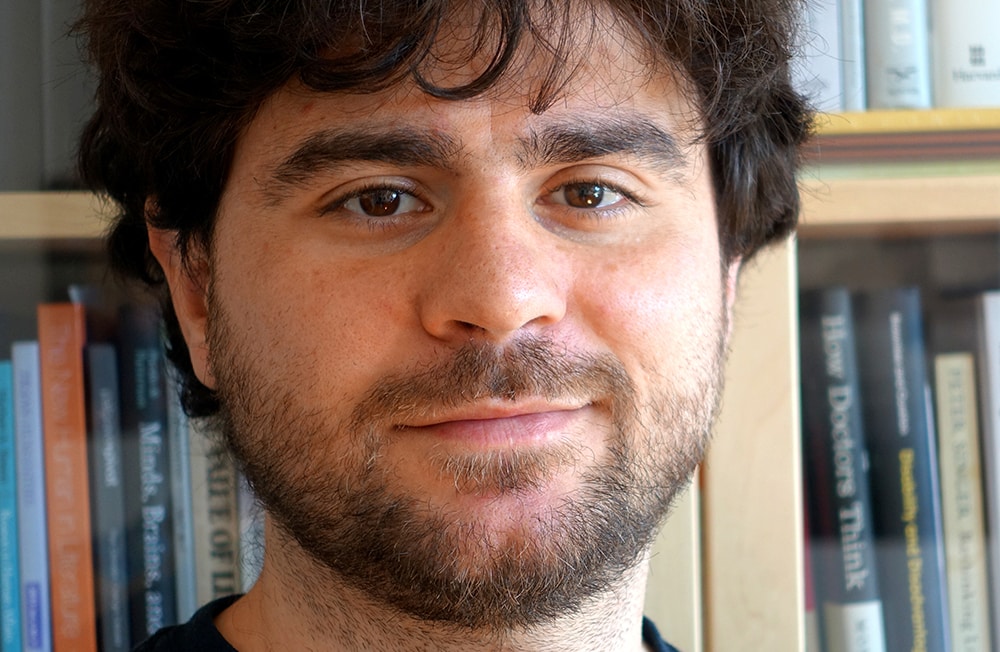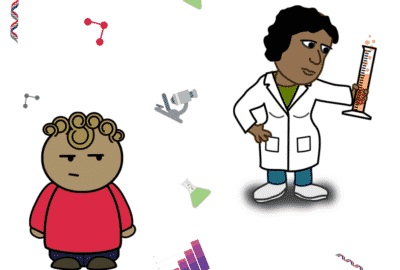Who should get the vaccine first?
Wednesday 3rd Feb 2021, 11.34am
It’s a question that’s on the lips of politicians, scientists and policy-makers right across the globe – who should get the COVID-19 vaccine first? Should it be the elderly and clinically vulnerable, healthcare professionals and other frontline workers, or another group entirely? We chat to Dr Alberto Giubilini, a philosopher at the Oxford Uehiro Centre for Practical Ethics, about why this decision is so ethically complicated.
Emily Elias: We have reached a new stage in the pandemic, the one where we are glued to production schedules of vaccines. As the race to inoculate is underway, who should get it first? Should it be frontline workers, the elderly, the clinically vulnerable, teachers or just workers who are keeping the economy going?
On this episode of The Oxford Sparks Big Questions podcast we are looking at a question that politicians and scientists around the world are asking, “Who should get the vaccine first?”
Hello, I am Emily Elias, and this is the show where we seek out the brightest minds at the University of Oxford, and we ask them the big questions. For this one, we are talking to a researcher who is looking at ethical dilemmas in real time.
Alberto Giubilini: I am Alberto Giubilini. I am a philosopher, and I work at the Oxford Uehiro Centre for Practical Ethics. I have worked mainly on issues around bioethics and public health ethics.
Emily: So are you ready to talk about some grim ethical problems?
Alberto: Yes, that is what I do all the time. (Laughter)
Emily: I guess let us jump into this. Here in the UK, the government has decided we are going to vaccinate the old people first, the healthcare workers, then get all those clinically vulnerable folks… Why do you think they decided to take that route of attacking this problem?
Alberto: So by vaccinating the most vulnerable first you address the most urgent problem that the country has at this moment, which is that the public health system, the NHS, is at capacity, so it is struggling a lot. And if you prevent hospitalisations and deaths from COVID then you relieve a lot of the pressure on the public health system. This is the short-term goal, but given the situation we need to focus on the short-term goals first, before addressing longer-term goals. Although the narrative you will get is that, “We need to try to save as many lives as possible,” that is quite a different thing. So the main priority now is to preserve and protect the NHS.
Emily: Not every country has decided to go this route of vaccinating the elderly and clinically vulnerable first. What is going on in Indonesia?
Alberto: Yes, Indonesia is an interesting example. They took the exact opposite approach. So first of all, they are using a different vaccine, they are using a vaccine produced in China. Secondly, they have way more availability than we do in this country at the moment. So when you have a lot of vaccines, a lot of doses that you can give to people, you might go for a different strategy, which is to try to get the country and the economy back to some form of normality, and get the economy running, because the restrictions that have been introduced to manage the pandemic are causing a lot of harm, especially on young generation.
So what they did is try to prioritise young generations to make sure that they can go back to work or to normal life, and the country, overall, can move on and get out of this pandemic. It makes a lot of sense. And I think it is a strategy we should consider in this country, in the UK, when we have a bit more of availability of the vaccine.
Emily: So we have got two very clear examples of two different routes of tackling one really big problem. How do you ethically go about creating a priority list?
Alberto: We need to really to think carefully on what we want to prioritise. So even the UK’s approach, which you might agree or disagree with it, but there is a clear strategy about giving priority to groups by age, that can be questioned, because we need to really to think about what it is that we are pursuing. So what it is that we are valuing? So do we want to save as many lives as possible? Do we want to preserve the NHS? Do we want to preserve the lives that are worth preserving?
So this might sound a bit controversial, but saving as many lives as possible from COVID-19 comes with some counterintuitive consequences, which is that you might end up vaccinating people who are very old, who have a very low life expectancy, sacrificing the interests of people who are maybe a bit less old and have a longer life expectancy, but are still at higher risk of the vaccine.
For example, in the UK, the news of from some weeks ago is that a person aged 108, in a care home, was vaccinated, which means as someone who is aged maybe 70 or 75, will need to wait a bit longer for the vaccine. This case brings to light how there are different values to consider.
One is saving as many lives as possible, in which case you get the vaccine to the person age 108. But then you might want to give some consideration to life expectancy, in which case, you might want to give some priority to the 70 or 75 year old. You might want to consider the quality of life of the people who you are going to vaccinate, or you might want to consider things like the job that certain people do, so the kind of risk that they are exposed to because of their jobs.
So in the UK, for example, you vaccinate healthcare workers first, which makes a lot of sense. But there are other groups of workers who do essential jobs as well, and who are at high risk, say essential workers, the people who work in supermarkets, for example, people who collect the garbage, and these kinds of categories. This is another criterion that you might want to consider.
Emily: So this all takes us into a problem that philosophers have been struggling with since the beginning of philosophy, and it is called the trolley problem. So imagine you are in San Francisco, and you are on a little trolley, there are two tracks… If you go one way you will kill five people. If you go the other way you will kill just one person. Now, which way do you go? Do you sacrifice one person to save a larger number? Or do you just save that one person? Whose life is more important? It is a real ethical dilemma.
So essentially, this is one big trolley problem that we are seeing being played out around the world.
Alberto: It is a very complicated version of a trolley problem. Yes, it is one of those decisions, because, ultimately, whom you vaccinate first is the same as whom you give more chances of survival. So there will be people who die as a consequence of our vaccination decisions, and the question is about whom we think should be put at higher risk in this context, based on considerations about quality of life, life expectancy, number of lives saved, social utility of people, some reciprocity requirements, and maybe many other values. So it is way more complicated in a simple age based ranking suggests.
Emily: How do you think politicians, who are making these decisions in government, should they be attacking this?
Alberto: I think a bit more rationally than they are actually doing. It is a very easy narrative, the one whereby we should protect the vulnerable and save as many lives as possible, because intuitively that makes a lot of sense. So if you ask people, “Shall we save…? Shall we protect the most vulnerable?” Everyone will say, “Yes.” I would say, “Yes, of course.” But this is one consideration in normal circumstances.
We are living in a very unusual circumstances, where difficult decisions need to be made. So I would think that we should switch from this, what they call the monotheistic approach, where we consider only one kind of value, that is vulnerability to COVID-19, onto a more polytheistic approach, where we consider different values and we try to weigh them in a way that ultimately benefits the collective the most. So we should not forget that this is-
So the vulnerable in this situation are old people who are more vulnerable to COVID-19. But COVID-19 is not the only, or even maybe the main problem we are having, so there are all sorts of people/categories of people who are vulnerable to pandemic measures, say lockdown. Lockdown is posing a huge, huge burden on young generations, whose job prospects are often a bit grim now, because of lockdown. So we really need to balance the interests of different groups of people, and consider a much broader range of values than we are currently doing.
Emily: Of course, it seems to be very focused on a nation-by-nation strategy to tackling the vaccination programmes. But this is a global pandemic, there are countries in the developing world who are struggling as well. How do we then help those who aren’t amongst the richest countries?
Alberto: It is actually a problem not just with poor countries, we are seeing that these days there is a problem with Europe, that they might not have enough supply. But yes, the problem is global, so it affects poor countries, rich countries, Europe, the Global South, everyone… So there is this tension between what is now called vaccine nationalism, so the idea that each country should prioritise their own citizens, and a more globalised approach, whereby we see the problem as a collective global problem.
Again, we need to strike the right balance. So I think it makes sense for each country to be some priority of their own internal interests, just because that is what countries do, they have a responsibility first towards their own citizens. But I think we need to avoid this polarisation where we have nationalism on one side and globalism, or however you want to call it, on the other, because we need to understand that it is also in our own national interest to make sure that the pandemic is addressed globally. Focusing on our national interest makes sense in the short-term, now, like this month of January or February, because the NHS is collapsing. But if we want to solve the problem in the long-term we need to make sure that every other country has enough supply with vaccines, because the problem needs to be solved at the global level, not nationally, when we think in the longer-term.
Emily: What do you think this part of the pandemic, this experience, will end up teaching us about humanity?
Alberto: Pandemics are exceptional events in the human history. This is not the first pandemic we have had and it will not be the last. I do not think we have learned much from previous pandemics. So the question is of which kind of sacrifices we can legitimately impose on certain people, for the sake of other people. That is the main ethical issue that has emerged in this pandemic, and that would require a lot of ethical reflection once this is over.
Emily: This podcast was brought to you by Oxford Sparks from the University of Oxford, with music by John Lyons and a special thanks to Alberto Giubilini. Tell us what you think about this podcast, you can find us on the internet at Oxford Sparks, or you can go to our website, oxfordsparks.ox.ac.uk. I am Emily Elias, bye for now.




